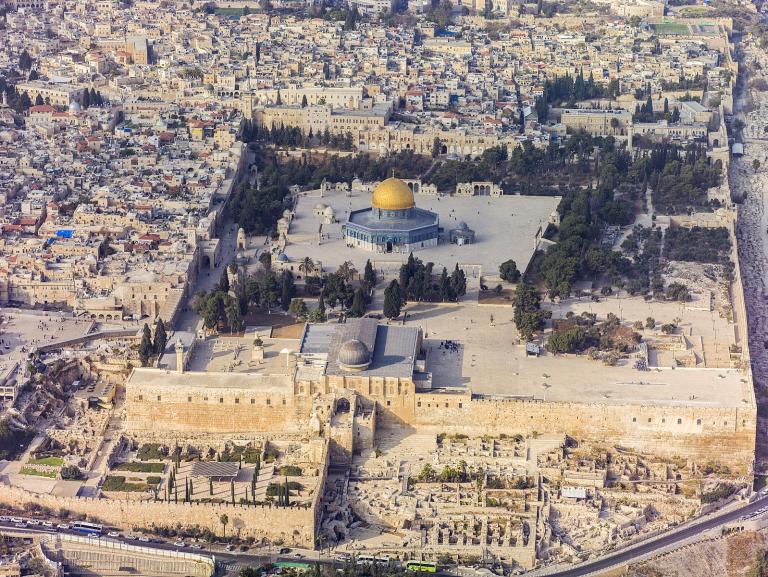
Among the places that we visited today was Jerusalem’s Temple Mount, known in Arabic as “al-Haram al-Sharif,” “The Noble Sanctuary”
I continue with a few remarks about an unfortunate little 2012 Huffington Post piece by one Eliza Wood:
“While in some ways neither Islam nor Mormonism is very much like Christianity,” writes Ms. Wood, who has never actually defined Christianity, but who appears to believe that merely asserting that Mormonism isn’t Christian does that work for her, “the two faiths actually have a lot of similarities. For example, both had founding prophets who received visits from an angel, leading to revelation of Scripture. Both consider the family unit as the foundation for religious life, and both have an insistence that religion is their complete way of life.”
Insisting that religion is a way of life is scarcely unique to either Islam or Mormonism.
And, while both Islam and Mormonism consider family life important, their respective theologies of family bear only the most superficial resemblance to each other.
Yes, though, both religions do really include visits from angels within their founding stories. Among many thousands of potential similarities and differences, that’s one example. But the stories and the roles of the angels are quite different in Islam and Mormonism.
“Islam and Mormonism,” announces Ms. Wood, “both require fasting and ritual cleanings.”
Fasting and ritual cleansing (e.g., baptism) are common to religions worldwide, not merely to Islam and Mormonism.
“They both believe theirs is the original religion of Adam,” Ms. Wood writes.
But so, historically, have mainstream Christianity and Judaism.
“Both Islam and Mormonism,” says Ms. Wood, “allowed four wives but both forbid homosexuality and bisexuality.”
Very few religions have traditionally celebrated homosexuality and bisexuality. It’s true, however, that both Mormonism and Islam have allowed polygamous marriages. Islam still does. Mormonism does not. But, while Islam limited men to four wives, Mormonism never did.
“Both religions,” Ms. Wood explains, “forbid alcohol and gambling.”
Mormonism and Islam are scarcely unique in frowning upon gambling and alcohol.
“This may be alarming to some,” writes Ms. Wood, who very likely hopes that her readers will be alarmed, “but both Islam and Mormonism teach that marriage can extend into the afterlife.”
It’s not at all clear that Islam teaches a continuation of marriage into the afterlife.
And, by the way, it’s not clear why Ms. Wood would find the idea of marriage continuing beyond death “alarming.” Is she revealing something about herself?
“Neither worships their founding prophets,” continues Ms. Wood, “but both hold them with special respect.”
Judaism and mainstream Christianity too venerate ancient prophets and saints. Ever heard of St. Peter’s Basilica? St. Paul’s Cathedral? Saint Patrick’s? Santa Ana, California? San Francisco? There’s nothing even remotely unique about regarding prophets, apostles, and saints with particular respect.
“Both religions heavily proselytize,” Ms. Wood writes, “and believe everyone should belong to their faith.”
Does Ms. Wood seriously believe that Christianity hasn’t been a missionary faith from its very beginning? Has she ever read the New Testament book of the Acts of the Apostles? What does she think St. Paul was doing on all those trips back and forth across Anatolia and the Mediterranean? Relaxing on the Lido Deck of a luxury cruise ship?
Posted from Jerusalem, Israel










